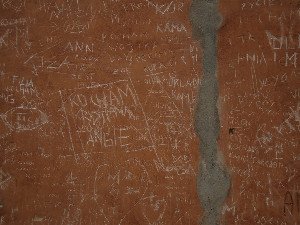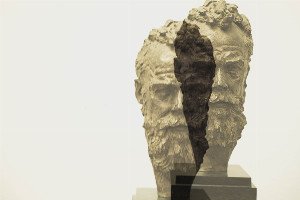Ali Maksum, Mujamil Qomar, Nur Efendi
Strategies for Strengthening the Construction of Adaptive and Sustainable Islamic Educational Management Science
Introduction
Strategies for strengthening the construction of adaptive and sustainable islamic educational management science. Explore strategies to strengthen adaptive & sustainable Islamic Educational Management. Integrate Islamic paradigms, modern approaches, curriculum innovation & digital tech for relevant, robust education.
Abstract
Islamic Education Management as a discipline continues to evolve in response to educational dynamics and the demands of the times. To remain relevant, strategies are needed to strengthen its scientific construction in an adaptive and sustainable manner. This study aims to explore strategies that can reinforce the foundation of Islamic Education Management, enabling it to address social, technological, and educational policy changes. Using a library research method, this study analyzes various academic literature on the concepts, development, and innovations in Islamic Education Management. The findings indicate that strengthening the construction of this discipline can be achieved through the integration of Islamic paradigms with modern management approaches, curriculum innovation, the enhancement of academic and practitioner competencies, and the utilization of digital technology in Islamic education management. The implications of this study highlight the importance of synergy between theory and practice in shaping Islamic Education Management that is not only based on Islamic normative values but also adaptable to global developments. This study is expected to serve as a reference for academics, education practitioners, and policymakers in designing strategies for the development of a more robust, relevant, and sustainable Islamic Education Management.
Review
This paper addresses a timely and significant topic: the strategies for strengthening the scientific construction of Islamic Education Management (IEM) to ensure its adaptive and sustainable development. The abstract clearly articulates the evolving nature of IEM and the necessity for it to remain relevant amidst dynamic educational, social, and technological changes. The study's aim to explore reinforcing strategies, enabling the discipline to respond to contemporary challenges, is highly commendable. The choice of a library research method is appropriate for a foundational analysis, allowing for a broad synthesis of existing academic literature to identify overarching concepts and innovations within the field. The findings of this study offer valuable insights, proposing a multi-faceted approach to bolster IEM. The identified strategies—integrating Islamic paradigms with modern management, curriculum innovation, enhancing competencies of academics and practitioners, and leveraging digital technology—collectively form a coherent framework for progress. The emphasis on achieving synergy between theory and practice, ensuring IEM is grounded in Islamic normative values while remaining adaptable to global developments, represents a crucial contribution. This balance is vital for the discipline's holistic growth and practical relevance. The paper's stated implications for academics, practitioners, and policymakers suggest a broad intended impact, positioning it as a potentially useful reference for strategic planning in the field. While the study effectively synthesizes existing literature, a potential area for further development or future research could lie in the empirical validation of these proposed strategies. As a library-based study, it provides a strong conceptual foundation, but the practical effectiveness and challenges of implementing these strategies in diverse educational contexts are not directly explored. Future work could benefit from case studies, surveys, or qualitative interviews with practitioners to provide concrete examples of successful integration or to identify specific barriers. Nevertheless, this paper offers a well-structured and pertinent analysis, providing a robust theoretical framework that is expected to significantly contribute to the ongoing discourse on developing a more resilient and forward-looking Islamic Education Management discipline.
Full Text
You need to be logged in to view the full text and Download file of this article - Strategies for Strengthening the Construction of Adaptive and Sustainable Islamic Educational Management Science from Chalim Journal of Teaching and Learning .
Login to View Full Text And DownloadComments
You need to be logged in to post a comment.
Top Blogs by Rating
Reclaim Your Day: Mastering th...
By Sciaria
The Spiritual Shelf Life: Navi...
By Sciaria
Beyond the Chart: The Indispen...
By Sciaria
Favorite Blog
Whispers from the Walls: Unloc...
By Sciaria
The Unspoken Wisdom: Embracing...
By Sciaria
Beyond the Charts: Unlocking S...
By Sciaria
Related Research
Chiara de santi. privet, compagne e compagni! intellettuali in unione sovietica negli anni cinquanta
The influence of principal professional competence on the quality of elementary school education
Introducción al volumen temático
Share
Notice Board
- ANALYSIS OF THE RELATIONSHIP BETWEEN MOTIVATION AND LEARNING OUTCOMES OF CHINESE LANGUAGE EDUCATION STUDENTS CLASS OF 2022 SEMARANG STATE UNIVERSITY IN THE CHUJI HANYU XIEZUO XIA COURSE
- THE INFLUENCE OF LEARNING COMMUNITY ON PEDAGOGICAL COMPETENCE OF PUBLIC ELEMENTARY SCHOOL TEACHERS
- “PITää OSATA PUHUA, OHJATA, KUUNNELLA JA OMATA PIKKUSEN NäYTTELEMISEN TAITOA” – IKääNTYNEIDEN ETäKOTIHOITOTYöN EDELLYTTäMäT TAIDOT JA OSAAMINEN AMMATTILAISTEN KOKEMANA





